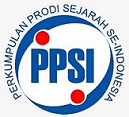Mongol invasion of Transoxiana 1219-1221 AD
Abstract
The Mongol invasion of the Islamic world, especially parts of Transoxiana, was a serious threat to the Islamic world. This invasion was the first gateway for the Mongols to carry out subsequent invasions to other parts of the Islamic world, which resulted in the Islamic world getting worse and experiencing enormous destruction. This research uses the historical method. History as a science has a method for studying, analyzing, and reconstructing events in the past. This research is included in Library Research or literature assessment. The Mongol invasion of the Islamic world marked the end of the classical centuries and the beginning of the Middle Ages in Islamic history. The Mongol invasion could not be underestimated in the capacity of its military forces. One of the factors in the defeat of the Islamic world to the Mongol invasion, namely from the Mongol military power itself, and coupled with the internal weakness of Muslims, which began to experience divisions in terms of power. Other than that, the mentality of the Muslims themselves in war has begun to look weak and they have begun to suffer from the disease of fear of death. So that those who are not afraid and are not afraid of death can excel in mastering the battlefield, like the Mongols.
Keywords: Invasion, Mongols, TransoxianaFull Text:
PDFReferences
Al-Usairy, A. (2016). Sejarah Islam: Sejak Zaman Nabi Adam hingga Abad XX. Jakarta: Akbar Media.
An-Nashr, M. A. (2017). Islam di Asia Tengah: Sejarah, Peradaban, dan Kebudayaan. Jakarta: Pustaka Al-Kautsar.
Affan, M. (2018). KESULTANAN UTSMANI (1300-1517): Jalan Panjang menuju Kekhalifahan. Jurnal Tamaddun, 6(2).
As-Suyuthi, I. (2001). Tarikh Khulafa. Jakarta: Pustaka Al-Kautsar.
Bathuthah, I. (2014). Rihlah Ibnu Bathuthah: Memoar Perjalanan Keliling Dunia di Abad Pertengahan. Jakarta: Pustaka Al-Kautsar.
Budi, S. (2018). Politik Penguasaan Bangsa Mongol Terhadap Negeri-Negeri Muslim Pada Masa Dinasti Ilkhan (1260-1343). Rihlah: Jurnal Sejarah dan Kebudayaan, 6(1), 46-63.
Djang, S. (2011). Genghis Khan: Badai di Tengah Padang II. Yogyakarta: Bentang Pustaka.
Karim, M. A. (2016). Dinasti Golden Horde Pembacaan Historis Terhadap Kekuasaan Mongol Islam Di Asia Tengah. Jurnal Kawistara, 6(2), 129-143
KARIM, M. A. (2005). KEKUASAAN MONGOL ISLAM DI ASIA TENGAH (ANALISIS HISTORIS TERHADAP PEMERINTAHAN DINASTI GOLDEN HORDÉ). Jurnal HermeneiaVol-4-No-2-2005.
Muhammad, N. (2010). Jenghis Khan: Sang Pengembala yang Menaklukan Dunia. Yogyakarta: Buku Biru.
Nasr, S. H. (1997). Sains dan Peradaban di dalam Islam. Bandung: Penerbit Pustaka.
Setiawan, Agus Mahfudin. (2019). Transisi Khalifah Umayyah: Dari Muawiyah Bin Abu Sufyan Ke Yazid Bin Muawiyah (661-683 M). Jurnal Tsaqofah & Tarikh , Vol 4, No 2, 107-119.
Suryanti, S. (2017). Bangsa Mongol Mendirikan Kerajaan Dinasti Ilkhan Berbasis Islam Pasca Kehancuran Baghdad Tahun 1258-1347 M. NALAR: Jurnal Peradaban dan Pemikiran Islam, 1(2), 146-158.
Wibowo, A. (2013). Selimut Debu Impian dan Kebanggaan dari Negeri Perang Afghanistan. Jakarta: Gramedia.
DOI: http://dx.doi.org/10.24042/jhcc.v3i1.11415
Refbacks
- There are currently no refbacks.
Copyright (c) 2022 Fahmi Moh Ansori
Jurnal El Tarikh is the Journal of History, Culture,and Islamic Civilization (JHCC) [ISSN:2774-7999 dan e-ISSN: 2774-8723] published by Faculty of Adab, Universitas Islam Negeri Raden Intan Lampung, Indonesia in collaboration with Perkumpulan Prodi Sejarah Se-Indonesia (PPSI) and Asosiasi Program Studi Sejarah Islam Se-Indonesia (APSII)
Office: Faculty of Adab, Universitas Islam Negeri Raden Intan Lampung. Jl. Letkol H. Endro Suratmin, Sukarame, Bandar Lampung, Lampung, Indonesia, KP. 34513. Website: http://ejournal.radenintan.ac.id/index.php/eltarikh, Email: Jurnaleltarikh@radenintan.ac.id
Jurnal El Tarikh is licensed under a Creative Commons Attribution-ShareAlike 4.0 International License.







.gif)

1.png)



.jpg)